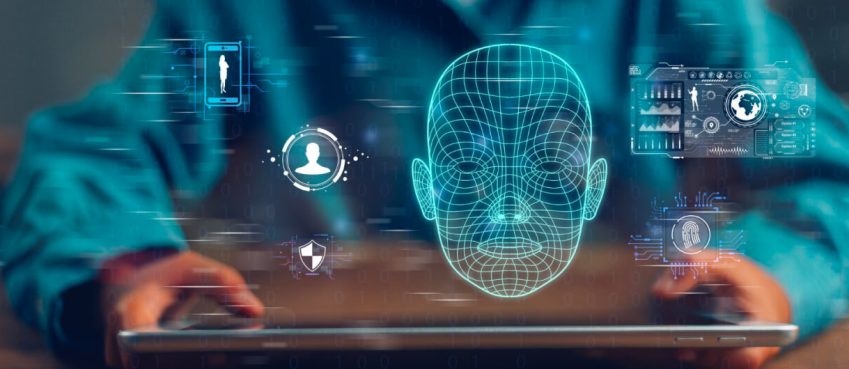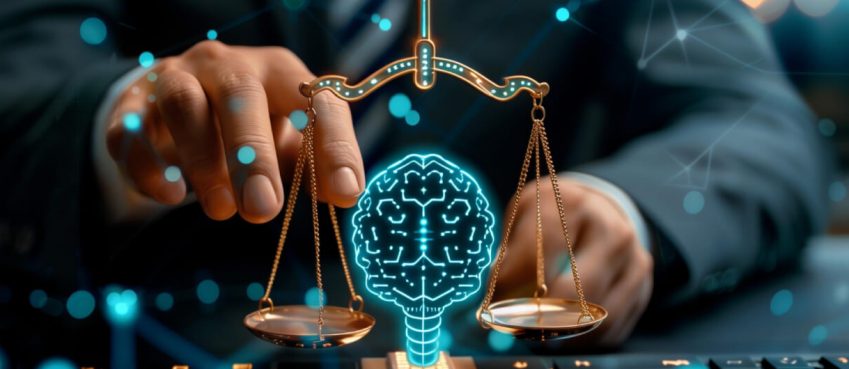
Protecting innovations and keeping ahead of the competition are both crucial goals. Consequently, there has been an increase in the significance of intellectual property (IP) strategies, particularly those enabled by AI development. The expanding use of AI tools in the workplace has profound and far-reaching impacts on intellectual property.
Understanding IP Strategies
One must first be familiar with IP techniques to comprehend how AI affects IP tactics. Individuals and businesses may choose from various intellectual property strategies to guard their ideas, inventions, and creative works against theft. Patents, trademarks, copyrights, and trade secrets are just a few ways that intellectual property may be protected.
The Pioneering Role of AI in IP Strategies
AI in Patent Analysis
The emergence of AI has completely revolutionized the time-consuming and labor-intensive process of AI patent analysis. AI has replaced the laborious process of searching through large patent databases to find relevant previous art and evaluate the originality of discoveries.
AI algorithms have breathed new life into this process, enabling patent examiners and attorneys to identify patterns, keywords, and connections between patents more easily and accurately. By integrating natural language processing (NLP) with AI tools, the analysis of patents has become more comprehensive and precise.
Also read: What Is Gaming In Metaverse? 7 Best Metaverse Games To Play In 2024AI in Trademark Search and Monitoring
Beyond patent research, AI has also found applications in trademark search and monitoring systems. With the aid of AI-powered technology, scanning multiple databases for potential trademark conflicts has become a seamless task. Real-time searching has become a reality, simplifying the process of ensuring new trademarks do not clash with existing ones.
AI’s contributions to trademark monitoring are equally invaluable. AI’s capacity to identify IP infringement and misappropriation in record time supports businesses’ efforts to protect their names.
The Perks of AI in IP Strategies
Augmented Efficiency and Accuracy
The dynamic duo that AI brings to the table is increased efficiency and accuracy. When AI enters the game, search and analysis processes become a breeze, saving precious time and effort.
Cost-Effectiveness
Companies that invest in filing patents and trademarks soon will be pleasantly surprised. When AI is used to automate previously manual processes, the results are so impressive that everyone’s wallet smiles in appreciation.
Real-Time Insights and Data Analysis
Protecting sensitive information and preventing accidents require constant monitoring and analysis of the vast amounts of data with which AI interacts.
The Challenges and Limitations of AI in IP Strategies
Data Privacy and Security Concerns
The fact that AI depends on these massive data sets highlights the significance of preserving their privacy and security to avoid illegal access or misuse.
Also read: The 15 Best E-Commerce Marketing ToolsInterpretation of Complex Legal Concepts
Artificial intelligence systems may struggle to understand the complexities of the law and the subtleties of context that are often at the heart of intellectual property conflicts. Navigating such difficulties still requires legal knowledge and human skills.
Final Words
AI technologies automate processes, give real-time insights, and substantially cut costs. The widespread use of AI has enormous potential for assisting businesses in the globalized market when applied to IP initiatives. As the future unfolds, embracing AI-driven IP strategies will be essential for staying ahead in the ever-evolving world of innovation.
Top 10 News
-
01
[10 BEST] AI Influencer Generator Apps Trending Right Now
Monday March 17, 2025
-
02
The 10 Best Companies Providing Electric Fencing For Busines...
Tuesday March 11, 2025
-
03
Top 10 Social Security Fairness Act Benefits In 2025
Wednesday March 5, 2025
-
04
Top 10 AI Infrastructure Companies In The World
Tuesday February 11, 2025
-
05
What Are Top 10 Blood Thinners To Minimize Heart Disease?
Wednesday January 22, 2025
-
06
10 Top-Rated AI Hugging Video Generator (Turn Images Into Ki...
Monday December 23, 2024
-
07
10 Top-Rated Face Swap AI Tools (Swap Photo & Video Ins...
Friday December 20, 2024
-
08
10 Exciting iPhone 16 Features You Can Try Right Now
Tuesday November 19, 2024
-
09
10 Best Anatomy Apps For Physiologist Beginners
Tuesday November 12, 2024
-
10
Top 10 Websites And Apps Like Thumbtack
Tuesday November 5, 2024







